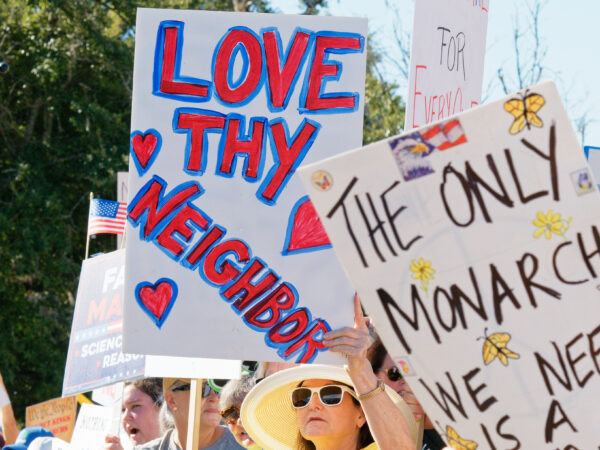
This Third Sunday of Epiphany is a celebration of light breaking into darkness, but as I write, my friends and neighbors are reeling from the death of a legal observer—shot and killed by a federal agent blocks from my home.

Eventually, we all need others, leaving cooperation, humility, and patience the only lasting realities of human access to power. If the last few years have taught us anything, it’s that power can abandon any of us, at any moment – even and especially on a debate stage, in full view of the entire planet. We all forget this lesson at our peril.

The ability or inability of insiders to hear the silences that arise on the other side of the borders drawn by colonizing societies around themselves, to perceive them as the echo of missing voices, may constitute, for the victims of colonialism, an indication of whether they can place their hopes for a more just world in something other than violence.

Jesus’ call to a ‘let-it-be righteousness,’ awash in basileia imperatives, upends despotic designs. Resistant to rule-following, a let-it-be righteousness confounds and dismantles the 3 P’s of oppressive regimes: propriety, purity, and piety.

What happens when kings and rulers are confronted by a child whose very presence boldly proclaims that God is with us? Sometimes children have an astounding ability to disrupt the status quo. They resist passivity and compliance, they dream boldly and they demand justice. Who are our Immanuels today? And what do we do when we encounter them?






